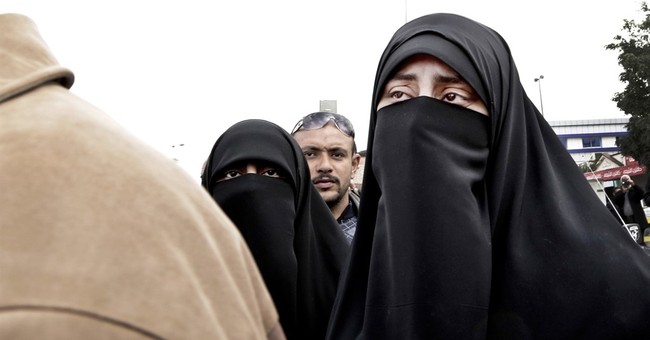Why Does Terrorism Spare Switzerland?

Last weekend, flights at Paris Orly Airport came to a temporary halt after 39-year old Ziyed Ben Belgacem, born in Paris and of Tunisian descent, was shot dead by French military patrol officers after grabbing a female soldier, holding a gun to her head, and announcing, "Put down your weapons! Put your hands on your head! I am here to die for Allah. Whatever happens, there will be deaths!"
Last month in Paris, Egyptian national Abdullah Reda al-Hamamy attacked a soldier guarding the Louvre, wielding a machete while yelling, "Allahu Akbar!" He was shot by other soldiers and seriously wounded.
It's easy to get the impression that terrorism in Europe is becoming inevitable.
But the former head of French foreign intelligence shot down that idea in an email exchange with me this week. "If we start qualifying as a 'terrorist,' for politico-media reasons, any idiot delinquent cocaine addict, pumped full of alcohol and cannabis, with no link to any movement and who loses his marbles, we are playing exactly the game of the real terrorists in feeding the public paranoia," he told me.
Right ... because the No. 1 reason for quitting cocaine, alcohol or weed is to stop committing public acts of violence while shouting popular jihadist phrases.
What's curious is that a country right in the middle of Europe is seemingly exempt from radical Islamic terror attacks: Switzerland. Why aren't there Swiss jihadists creating mayhem like their European counterparts?
This is also the case with EU pressure to accept migrants from war-torn regions under the guise of humanitarianism. Switzerland is part of the open-border Schengen Area, yet it didn't hesitate to turn back migrants when they started showing up at the Swiss-Italian border last year. Switzerland has a reputation of being less than hospitable to migrants, due largely to strict rules for asylum seekers. As a result, the Swiss don't have the sort of culturally isolated enclaves that have fostered radical Islamic terrorists in European countries such as France and Belgium.
Also, Switzerland doesn't have a "giveaway" economy with high taxes and massive entitlements. Instead, you pay lower taxes and buy things for yourself. In Switzerland, you pay out of pocket for your own health care by purchasing a private insurance plan that competes in the marketplace for your hard-earned money. People tend to be more respectful of things that they have to pay for.
The Swiss seem reluctant to entirely separate church and state, to the point of banning the construction of minarets in a 2009 referendum. France and Belgium, on the other hand, have promoted radical secularism and church-state separatism. This has created a vacuum, leaving French and Belgian societies vulnerable to more radical alternatives that seek to exploit well-meaning tolerance and diversity.
Writing off terror attacks as the mindless acts of delinquents or drug addicts is just an excuse to avoid digging into the underlying realities that have helped spawn such chaos. These are the realities upon which some European nations have built faulty societal foundations. Switzerland has demonstrated that there's a better alternative.

No comments:
Post a Comment